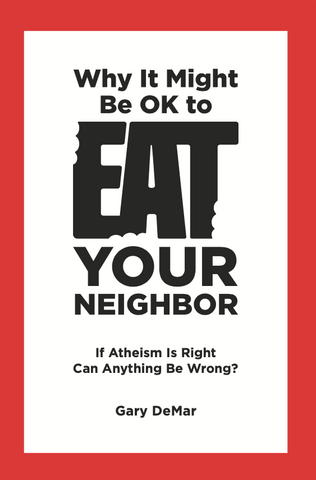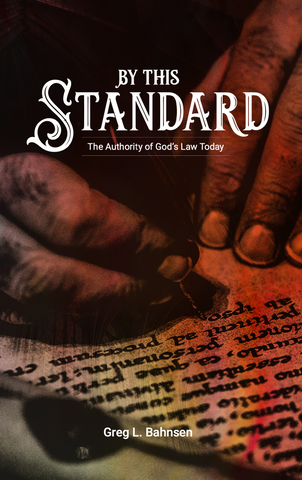Media mogul Ted Turner once said, in response to the Ten Commandments, “Nobody … likes to be commanded.” Soon after saying this, he produced his own laundry list of commandments that he argued we all should obey. Dismissing God’s commandments creates a moral vacuum with someone else’s commandments forced on us, usually from tyrannical governments.
The Chinese government understands the relevancy of the Ten Commandments, especially the first one, on which all the other commandments hang:
Chinese authorities have ordered a church to remove the First Commandment from a display on the grounds that it contradicts the policy of China’s President Xi Jinping.
According to Bitter Winter, which reports on religious freedom in China, about 30 officials in Henan Province’s Luoning country conducted an inspection at the church and wiped off the commandment from a display on the wall.
The commandment says: ‘You shall have no other gods before me.’ (Source: Christian Today)
A remnant of a biblical worldview remains in the United States and the Western world. We are living off that invested moral capital. But it won’t last if we abandon the invested source of that moral capital.

Why It Might Be OK to Eat Your Neighbor
The most damning assessment of a matter-only cosmos devoid of a Creator is that we got to this place in our evolutionary history by acts of violence whereby the strong conquered the weak with no one to support or condemn them. Why It Might Be OK to Eat Your Neighbor repeatedly raises the issue of accounting for the conscience, good and evil, and loving our neighbor. It’s shocking to read what atheists say about a cosmos devoid of meaning and morality.
Buy NowAndy Stanley, founder and senior pastor of North Point Ministries and son of Charles Stanley, the former senior pastor of the First Baptist Church of Atlanta and founder of In Touch Ministries, has reacted to advocating the posting of God’s law with this quip: “[I]f we’re going to create a monument to stand as a testament to our faith, shouldn’t it at least be a monument of something that actually applies to us?” A survey of U.S. pastors in Outreach magazine identified Stanley as one of the ten most influential living pastors in America. This means people are listening to him. He is also the author of more than 25 books that have been published by major Christian publishing companies. He went on to say the following:
“Participants in the new covenant (that’s Christians) are not required to obey any of the commandments found in the first part of their Bibles,” wrote Stanley. “Participants in the new covenant are expected to obey the single command Jesus issued as part of his new covenant: as I have loved you, so you must love one another.”
This new commandment is “a replacement for everything in the existing list. Including the big ten,” he maintained. “Just as his new covenant replaced the old covenant, Jesus’ new commandment replaced all the old commandments.”
How do you know when you are loving someone like Jesus loved someone? What standard did Jesus use to love someone? Those who promote abortion believe they are loving their neighbors by defending the legal right for them to kill their unborn babies. Homosexuals define their same-sex relationships as “love,” you know, ‘Love is Love.’ It’s possible that the young man who opened fire at Trump at the rally in Butler, Pennsylvania, believed he was acting out of love for some twisted ideology. Unless there is an objective external/eternal standard, love can mean anything to anyone.
Jesus said, “If you love Me, you will keep My commandments” (John 14:15). Love is defined by God’s commandments: “He who has My commandments and keeps them is the one who loves Me; and he who loves Me will be loved by My Father, and I will love him and will disclose Myself to him” (14:21). John wrote, “For this is the love of God, that we keep His commandments. And His commandments are not burdensome” (1 John 5:3). How do you know if you are loving God? By keeping His commandments. Seems clear enough.
We show our love toward someone by not stealing, murdering, committing adultery, and not bearing false witness, to name just four of the “outdated” Ten Commandments.
Jesus did not condemn the rich young ruler for keeping the commandments by telling him that he had come to replace all the old commandments:
A ruler questioned [Jesus], saying, “Good Teacher, what shall I do to inherit eternal life?” And Jesus said to him, “Why do you call Me good? No one is good except God alone. You know the commandments, ‘Do not commit adultery, Do not murder, Do not steal, Do not bear false witness, Honor your father and mother’” (Luke 18:18-20).
Instead of the Ten Commandments, Stanley said we should consider making monuments dedicated to the Sermon on the Mount. Has he read the Sermon on the Mount? There is a great deal of law in it. How about this one:
You have heard that it was said, “You shall not commit adultery”; but I say to you that everyone who looks at a woman with lust for her has already committed adultery with her in his heart. If your right eye makes you stumble, tear it out and throw it from you; for it is better for you to lose one of the parts of your body, than for your whole body to be thrown into hell. If your right hand makes you stumble, cut it off and throw it from you; for it is better for you to lose one of the parts of your body, than for your whole body to go into hell (Matt. 5:27-30).
Andy Stanley is trying to be relevant to a modern-day audience. I get that. But claiming a Christian or anyone else is not bound by God’s law is the height of irrelevancy.

By This Standard: The Authority of God's Law Today
Millions of Christians, sadly, have not recognized the continuing authority of God's law or its many applications to modern society. They have thereby reaped the whirlwind of cultural and intellectual impotence. They implicitly denied the power of the death and resurrection of Christ. They have served as footstools for the enemies of God. But humanism's free ride is coming to an end. This book serves as an introduction to this woefully neglected topic.
Buy NowI wonder if Andy Stanley noticed that the Apostle Paul quotes some of the Ten Words (the biblical name for the Ten Commandments: Deuteronomy 5:6-21) as well as “all the old commandments.”
Love is an action. For example:
Owe nothing to anyone except to love one another; for he who loves his neighbor has fulfilled the law (Rom. 13:8).
The Apostle Paul is referencing the law from the Old Testament: “You shall not take vengeance, nor bear any grudge against the sons of your people, but you shall love your neighbor as yourself; I am the Lord” (Lev. 19:18). Did you notice what follows Romans 13:8?
For this, “You shall not commit adultery, You shall not murder, You shall not steal, You shall not covet,” and if there is any other commandment, it is summed up in this saying, “You shall love your neighbor as yourself.” Love does no wrong to a neighbor; therefore love is the fulfillment of the law (13:9-10).
Once again, in biblical terms love is measured by the Law, and the Ten Commandments are part of that measuring device.
There are other places where laws from the Old Covenant are quoted or referenced (e.g., Rom. 1:18-32; 1 Cor. 5:1-2). Note how the law and the gospel are not mutually exclusive in the following:
But we know that the Law is good, if one uses it lawfully, realizing the fact that law is not made for a righteous person, but for those who are lawless and rebellious, for the ungodly and sinners, for the unholy and profane, for those who kill their fathers or mothers, for murderers and immoral men and homosexuals and kidnappers and liars and perjurers, and whatever else is contrary to sound teaching, according to the glorious gospel of the blessed God, with which I have been entrusted (1 Tim. 1:8-11).
By following the commandments of God, we exhibit love toward our neighbor.

